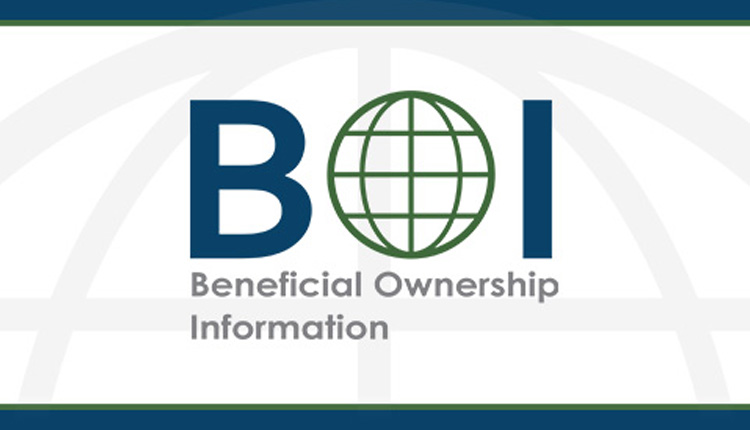Do You Need to Report Your Confidential Business Information to the Federal Government?

This is a complicated issue, and likely to be impacted by judicial proceedings and potentially by further federal governmental action as well.
As things stand at present:
- Under the 2021 Corporate Transparency Act (CTA), many privately-held businesses are required to report beneficial ownership information (BOI) to the Financial Crimes Enforcement Network (FinCEN), which is a part of the U;S; Department of the Treasury, for 2024. It’s 2024, and we’re into the year’s second quarter . The reporting rule was first issued on September 30, 2022, and finalized on November 29, 2023.
- On March 1, 2024, in National Small Business United d/b/a the National Business Association, et al. v. Janet Yellen, in her official capacity as Secretary of the Treasury, et al., U.S. District Court Judge Liles Burke granted summary judgment banning enforcement of the FinCEN reporting requirements, ruling that the CTA is unconstitutional.
- However, this ruling only impacts the reporting requirements as applied to the Plaintiffs in the case. These consist solely of the National Small Business Association and its members (some 60,000-plus, representing ~0.1%-0.2% of the small business owners FinCEN reporting requirements would have applied to), plus Isaac Winkles and any reporting companies in which he has beneficial ownership interests.
- On behalf of the Department of the Treasury, on March 11, 2024, the Department of Justice filed a Notice of Appeal, which sends the case to the U.S. Court of Appeals for the Eleventh Circuit.
Assuming that either the government’s appeal is successful, or that the injunction is not broadened to ban all enforcement of the FinCEN reporting requirements, what could these requirements mean for your business?
Does This Rule Apply to Your Business?
 If your business is a U.S. entity:
If your business is a U.S. entity:
- Created under U.S. laws (which include state and Native American tribal laws);
- A corporation or LLC; and
- Created via filing of a document or documents with a secretary of state or similar office, or
Your business is an entity:
- Created under the laws or a foreign nation; and
- Registered to do business in any U.S. State or Tribal jurisdiction via filing of a document or documents with the secretary of a U.S. State or similar office, and
Unless you work in one of the exempted industries (this is a long list, but unless your business is publicly traded, or in an industry which has its own significant regulatory reporting rules – e.g., banking, insurance, public accounting, etc. – click here for the full exemption list), you may have to file BOI reports with FinCEN.
Who Are Beneficial Owners?
 “Beneficial owners” are those people who, directly or indirectly, either:
“Beneficial owners” are those people who, directly or indirectly, either:
- Exercise substantial control over your business, or
- Own or control at least 25% of the ownership interests of your business.
Sounds simple, no? Well, no. Really. There are many ways via which a person may be deemed to exercise “substantial control” over a business. These include:
- Senior officers (e.g., president, chief financial officer, general counsel, chief executive officer, chief operating officer).
- Anyone with the ability to appoint or remove a senior officer or a majority of the board of directors.
- Important decision makers, who include those with direction or determination of, or substantial influence over the business, its finances, and/or its structure.
That last point can be complicated as to determination of whether an individual is in fact counted as possessing a beneficial ownership interest. A further potential complication is that to the above categories are appended the qualification that they include any other form of “substantial control” over the business.
Further, the term “beneficial ownership” extends to those individuals who control an intermediary entity that exercised “substantial control” over the reporting business.
There are exceptions, such as for minor children who may through inheritance or gift possess sufficient ownership of the reporting business to qualify. In this case, the requirements would allow for reporting such information about the parent or legal guardian of the child.
For businesses created or registered after January 1, 2024, the reporting requirements extend to “company applicants” as well.
Company applicants are those individuals who directly file the documents creating domestic, or registering foreign, reporting businesses, as well as those who exercise primary responsibility for directing or controlling the filing of the creation or first registration documents.
For businesses created or registered before January 1, 2024, FinCEN does not require the filing of BOI for company applicants.
What Beneficial Ownership Information Does FinCEN Require?
 If your business is a reporting business, as defined by the reporting rule, FinCEN requires reporting of the following:
If your business is a reporting business, as defined by the reporting rule, FinCEN requires reporting of the following:
For the reporting business itself:
- Full legal name;
- Any trade name or “doing-business-as” (“DBA” name;
- Complete current U.S. address of the principal place of business;
- Jurisdiction (state, tribal, or foreign) of formation; and
- IRS taxpayer identification number (TIN).
For foreign reporting businesses, required information includes the state or tribal jurisdiction of first U.S. registration to do business in this country. If a foreign company does not have an IRS issued TIN, FinCEN requires a foreign-issued TIN and the name of the issuing jurisdiction.
For each individual with “beneficial ownership interest,” including “company applicants” for those reporting businesses created or registered after January 1, 2024, FinCEN requires:
- Full legal name;
- Date of birth;
- Complete current address;
- Unique identifying number (e.g., Social Security number); and
- An image of either a U.S. passport, a state driver’s license, or a state identification document or card. For those who may have none of these, a foreign passport is accepted.
When Do I Have to File My Company’s BOI Reports?
 If your reporting business was created or registered before January 1, 2024, you must file your BOI report(s) with FinCEN by January 1, 2025.
If your reporting business was created or registered before January 1, 2024, you must file your BOI report(s) with FinCEN by January 1, 2025.
However, if your reporting business was created or registered after January 1, 2024, but before January 1, 2025, you have only 90 days after receiving actual or public notice that your creation or registration has become effective to file your BOI reports with FinCEN.
Further, for reporting businesses created or registered after January 1, 2025, you have only 30 days after your creation or registration becomes effective to file your FinCEN BOI reports.
This represents only an overview of the new FinCEN reporting requirements, and is not a complete explanation of each and every aspect.
We would encourage you in the strongest possible terms to confer with your Virtual CFO to ensure your business is in compliance with the new reporting requirements. S/he can help you identify whether your company is in fact required to report, and who would represent “beneficial owners” for reporting purposes.
We will monitor the judicial proceedings pertaining to the FinCEN reporting requirements – and keep you updated as to important developments and court decisions.
If you have any questions about the FinCEN reporting requirements, please click here to email us directly – let us help you!
Until next time –
Peace,
Eric
